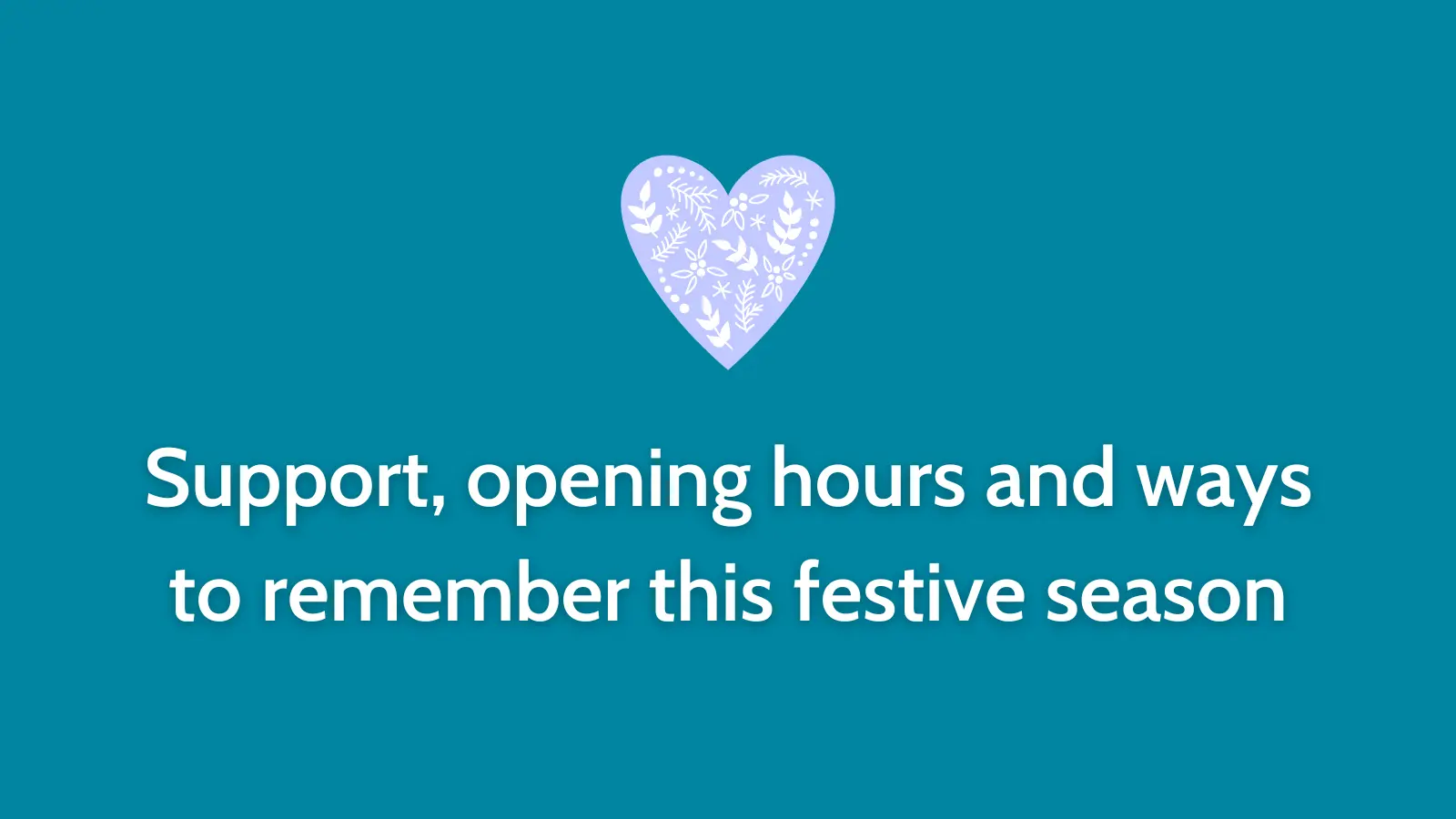Mental health and miscarriage – psychotherapist Julia Bueno shares some expert advice
13th May 2024
Julia Bueno, a UKCP reg psychotherapist and author of The Brink of Being – Talking About Miscarriage, answers questions from the Miscarriage Association about how to look after your mental health after pregnancy loss.
What can I do to help me process my loss, and the feelings that come with it?
The most important step to helping yourself process what has happened is to accept that whatever you feel deserves to be there. Every feeling has a place, and only you know the meaning of the pregnancy you had. If others expect you to bounce back quickly or seem to minimise your loss, you may be tempted to think you should do the same, but remember that all your responses are ’normal’ and also need your own kindly attention. Being kind to yourself is crucial.
It’s common to feel one, or some, or all, of sadness, yearning, anger, envy, panic, anxiety, guilt or, even, a sense of relief that a long and drawn-out loss has come to a physical end. Sometimes miscarriage can be a dreadful physical onslaught, yet emotionally be ‘OK’ and bearable too. It’s also common to feel a lot of things at the same time or in quick succession – many people use the metaphor of a ‘rollercoaster’ to describe the days and weeks after.
There are no ‘right’ or ‘wrong’ ways to process your loss, and letting yourself feel, with curiosity and compassion is key – just as you would support a friend in a similar situation.
Is there anything I can do that can help me look after my mental health during this time?
Looking after your mental health is closely linked to allowing yourself to process your loss. In other words, giving yourself permission to grieve is protective of your mental health. Also, seeking out, and accepting support at this time can be very important, but choose your support wisely – there may be people who you can lean on with confidence, whereas others may struggle to offer what you need – eg. your pregnant friend or someone who struggles with ’emotional talk’.
Please be careful of turning to social media for support – it’s so tempting to seek assurance online by finding stories of hope, but the risk is high that other stories provoke further fear and upset. Similarly, protect yourself from events or circumstances that will hurt you – such as baby showers or supermarket aisles where baby food and nappies are.
Think about taking time off work (and for some, this may mean a few weeks rather than days), ensuring you have appropriate medical advice (which may mean asking for more or a second opinion), and looking after your physical health, which may well have been impacted too. Don’t push yourself to ‘be better’ and be mindful of any self-critical talk.
Is it normal to find it hard to open up about how you feel? It’s really difficult to talk about with friends and family – how can I do this?
It is normal to find it hard to open up, because pregnancy loss is so often misunderstood by others, and we can’t be certain that others will ‘get it’. Also, it can arouse feelings in us that we may feel badly about – such as anger or envy. It also involves pain and blood and bodily experiences that many of us find difficult to talk about openly. It’s fair to say our culture isn’t at ease with talking about grief generally, and there is still a way to go in terms of fully understanding the potential enormity of a loss in pregnancy. Very few people understand the ‘child in mind’ that you carried.
However, most often friends and family do want to offer support but may be feeling at a loss as to what to say, or might be holding back for fear of causing upset. You may want to let them know that you want or need to talk about your feelings – or need a distraction or company, but if this doesn’t encourage responses you need, know that there are other potentially valuable sources – such as that offered by the Miscarriage Association’s support services and groups.
How can I communicate with my partner about how I feel, and also support them through their grief/loss?
Partners will be going through their own process, which may well be an intense grief or shock or even regret or guilt at not being able to help more. It’s usual for a partner to feel protective and to want to support you through everything you and your body has been through, which may mean they hold back from ‘burdening’ you with their own feelings. Many couples end up misunderstanding each other – try and be as honest and open as possible with each other as often as you can – especially as feelings do and will change over time. This may even mean making an extra effort to talk, such as setting a specific time each day.
I’ve been feeling low for quite some time – when should I seek help, and how?
It’s entirely appropriate to feel out of sorts for a few weeks. However, if your feelings and symptoms (such as anxiety or insomnia or low mood) are getting in the way of living your life as you would like, please think about getting extra support. We know that the bereaved after miscarriage are at higher risk of experiencing clinically recognisable anxiety and depression, and even traumatic responses which merit professional help. Your GP may be able to offer this, although realistically waiting lists run high. Some hospitals offer specialist bereavement counselling, but again the likelihood is a long wait. The Miscarriage Association has a curated list of experienced talking therapists, while Petals charity is another specialist provider of counselling after pregnancy loss. Welldoing.org is a great portal for finding specialist support too.
Contact the Miscarriage Association for more information.

You can find Julia Bueno online at https://www.juliabueno.co.uk/.

